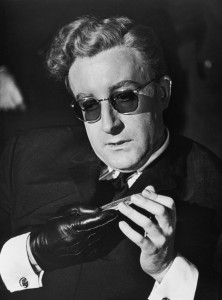The death of John Nash with his wife Alicia in a car accident is a sad, sad end to a remarkable life. The story of Nash’s genius, madness and recovery is well known thanks to the movie based on Sylvia Nasar’s wonderful biography, [amazon_link id=”0571212921″ target=”_blank” ]A Beautiful Mind[/amazon_link]. There have been many obituaries and appreciations. This VoxEU column is an excellent outline of why Nash’s work was so important for economics.** John Cassidy has a nice New Yorker column. [amazon_link id=”0691095272″ target=”_blank” ]The Essential John Nash[/amazon_link] is certainly worth a go – there are pdfs of the introductory material on the Princeton University Press website – and there is plenty of material on the Nobel prize website.
[amazon_image id=”0691095272″ link=”true” target=”_blank” size=”medium” ]The Essential John Nash[/amazon_image] [amazon_image id=”0571212921″ link=”true” target=”_blank” size=”medium” ]A Beautiful Mind[/amazon_image]
For more on game theory, one very enjoyable historical perspective – looking too at other uses of mathematics in economics – is Paul Strathern’s [amazon_link id=”0140299866″ target=”_blank” ]Dr Strangelove’s Game: A Brief History of Economic Genius[/amazon_link]. It starts with John Von Neumann (giving the impression that Peter Sellers as Dr Strangelove only slightly overacted the role), and Morgenstern ad Von Neumann’s [amazon_link id=”0691130612″ target=”_blank” ]Theory of Games and Economic Behaviour[/amazon_link] and ends with John Nash. Interestingly, Strathern focuses on the difference between co-operative and non-cooperative games rather than zero and non-zero sum. As for the uses of game theory in life, rather than just economics, my favourite book is Dixit and Nalebuff’s [amazon_link id=”0393337170″ target=”_blank” ]The Art of Strategy[/amazon_link] – it has a website where you can read an excerpt.
Step one in using game theory in life is just to think about how other people will react to your actions – something so easy to say, yet so rarely done.* And how paradoxical that something that seems like common sense had its roots in unusually tortured genius.
[amazon_image id=”0140299866″ link=”true” target=”_blank” size=”medium” ]Dr. Strangelove’s Game: A Brief History of Economic Genius[/amazon_image] [amazon_image id=”0691130612″ link=”true” target=”_blank” size=”medium” ]Theory of Games and Economic Behavior (Princeton Classic Editions)[/amazon_image] [amazon_image id=”0393337170″ link=”true” target=”_blank” size=”medium” ]The Art of Strategy: A Game Theorist’s Guide to Success in Business and Life[/amazon_image]

Dr Strangelove, an atypical economist
*I remember once saying to a room full of policy economists that figuring out the Nash equilibrium in the context of a decision different EU governments were making at the same time meant our policy advice was a no-brainer; not all of them got the point.
** Update for econ anoraks: Note the nice description here of Nash’s bargaining solution as a Possibility Theorem, published at the same time Arrow developed his Impossibility Theorem. I think it’s the unrestricted domain axiom that makes the difference.
